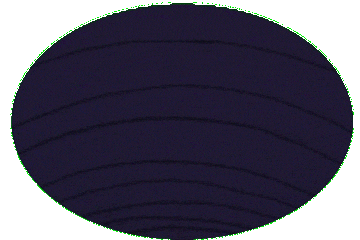The Moon Is a Harsh Mistress
The Moon Is a Harsh Mistress is a 1966 science fiction novel by American writer Robert A. Heinlein about a 2075 revolt by a lunar penal colony against Earth's rule. Three million "Loonies" (lunar inhabitants) live in underground cities where a virtually anarcho-capitalist society has developed. When the Federated Nations threaten the colony's resources, computer technician Manuel "Mannie" O'Kelly-Davis, political agitator Wyoming Knott, and rational-anarchist Professor Bernardo de la Paz join forces with "Mike," a self-aware supercomputer, to plan an independence movement timed to culminate on July 4, 2076. The novel explores libertarian ideals, focusing on the concepts of individual liberty, voluntary association, and free-market economics. The book also popularized the term TANSTAAFL ("There Ain't No Such Thing As a Free Lunch"), which in the story underscores the Moon's harsh reality that every resource and every freedom carries a cost. The book is respected for its credible presentation of a comprehensively imagined future human society on both the Earth and the Moon. Originally serialized monthly in Worlds of If (December 1965 – April 1966), the book was nominated for the Nebula Award in 1966 and won the 1967 Hugo Award for Best Novel. The novel went on to influence later science fiction as well as discussions of economics, politics, and hacker culture.
This article uses material from the Wikipedia article "The Moon Is a Harsh Mistress", which is released under the Creative Commons Attribution-Share-Alike License 3.0.
Connection Chains
- From Crois-Tu Vraiment to The Moon Is a Harsh Mistress in 12 Steps
- From Pretty Soon There'll Be Nothing Left for Everybody to The Moon Is a Harsh Mistress in 12 Steps
- From The Moon Is a Harsh Mistress to John Farnham in 11 Steps
- From Son of Dracula to The Moon Is a Harsh Mistress in 11 Steps
- From Wren Music to The Moon Is a Harsh Mistress in 11 Steps
- From John Lennon to The Moon Is a Harsh Mistress in 10 Steps
- From Travelin' Man to The Moon Is a Harsh Mistress in 10 Steps
- From Donald "Duck" Dunn to The Moon Is a Harsh Mistress in 9 Steps
- From Blackwood Music to The Moon Is a Harsh Mistress in 9 Steps
- From Dismember Of The Wedding to The Moon Is a Harsh Mistress in 9 Steps
- From The Moon Is a Harsh Mistress to Griffin Dunne in 8 Steps
- From Salmon Falls to The Moon Is a Harsh Mistress in 8 Steps
- From Ambush to The Moon Is a Harsh Mistress in 8 Steps
- From Me and My Arrow to The Moon Is a Harsh Mistress in 8 Steps
- From These Are the Brave to The Moon Is a Harsh Mistress in 8 Steps
- From Diez Indios to The Moon Is a Harsh Mistress in 8 Steps
- From The Moon Is a Harsh Mistress to Circle of Life in 7 Steps
- From The Moon Is a Harsh Mistress to David Bowie in 7 Steps
- From The Moon Is a Harsh Mistress to March 10 in 7 Steps
- From The Moon Is a Harsh Mistress to Preston Epps in 7 Steps
- From Harry Nilsson to The Moon Is a Harsh Mistress in 7 Steps
- From Dallas Bartley to The Moon Is a Harsh Mistress in 7 Steps
- From Reunion to The Moon Is a Harsh Mistress in 7 Steps
- From March 5 to The Moon Is a Harsh Mistress in 7 Steps
- From Hal Blaine to The Moon Is a Harsh Mistress in 7 Steps
- From The Moon Is a Harsh Mistress to Attitudes in 6 Steps
Connections
- Jimmy Webb recorded The Moon Is a Harsh Mistress
- The Moon Is a Harsh Mistress was recorded by Jimmy Webb





